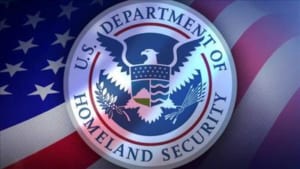The Department of Homeland Security (“DHS”) published a Notice of Proposed Rule-Making (“NPRM”) to adjust fees for various immigration benefits provided by the United States Citizenship and Immigration Services (“USCIS”). Included in the NPRM are proposed fees for many forms used under the EB-5 Immigrant Investor Program (“EB-5 Program.”).
Fees for various petitions and applications under the EB-5 Program are proposed to increase as follows:
Investor Forms:
- Form I-526, Immigrant Petition by Alien Entrepreneur, and Form I-526E, Immigrant Petition by Regional Center Investor will increase from $3,675 to $11,160;
- Form I-829, Petition by Investor to Remove Conditions on Permanent Resident Status will increase Petition from $3,750 to $9,525.
These fees are increasing by a large percentage.
Regional Center and Project forms:
- Form I-956, Application for Regional Center Designation, a new form replacing the previous Form I-924, will increase from $17,795 to $47,695;
- Form I-956F, Application for Approval of Investment in a Commercial Enterprise, a new form arising out of the EB-5 Reform and Integrity Act of 2022 has a propose fee of $47,695.
Companies that want to apply for and operate a Regional Center, maintain a Regional Center every year and sponsor an investment project will pay a considerable cost to do so. We expect this will drive many existing Regional Centers out of business and discourage new companies from applying for Regional Center approval; thus, reducing and restricting opportunity in the EB-5 Program.
Easily, the greatest objection to these significantly increased costs is the lack of confidence that these increases will result in quicker processing and better service in the EB-5 Program.
Additionally, these increases will most likely go into effect because DHS will follow the proper legal process of increasing fees although it is possible that they may be delayed if some EB-5 stakeholders file lawsuits to challenge or simply delay the final publication and implementation.
If you have question about the EB-5 Program, contact us now at info@enterlinepartners.com and speak with a U.S. immigration attorney in Ho Chi Minh City, Manila and Taipei.
ENTERLINE & PARTNERS CONSULTING
Ho Chi Minh City, Vietnam Office
Suite 601, 6th Floor, Saigon Tower
29 Le Duan Street
Ben Nghe Ward, District 1
Ho Chi Minh City, Vietnam
Tel: +84 933 301 488
Email: info@enterlinepartners.com
Facebook: Enterline & Partners – Dịch vụ Thị thực và Định cư Hoa Kỳ
Website: http://enterlinepartners.com
Manila, Philippines Office
Tel: +63 917 543 7926
Email: info@enterlinepartners.com
Facebook: Enterline and Partners Philippines
Website: https://enterlinepartners.com/language/en/welcome/
Copyright 2023. This article is for information purposes only and does not constitute legal advice. This article may be changed with or without notice. The opinions expressed in this article are those of Enterline and Partners only.








